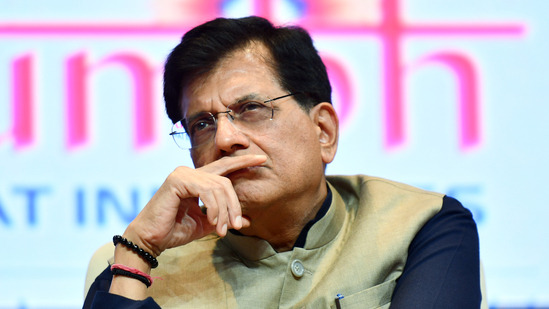Union Minister of Commerce and Industry Piyush Goyal has appealed to Indian startups to focus more on core technology innovation instead of investing in areas such as grocery delivery and ice cream services. His comments follow increasing fears that the Indian startup ecosystem is giving too much emphasis to short-term convenience-based solutions at the expense of long-term technological innovation.

Call for Vision-Driven Innovation
Addressing a recent industry conference, Goyal stressed the importance of startups linking their objectives with national priorities like digital infrastructure, AI, and deep-tech creation. He stressed that although delivery services might create fleeting popularity or consumer traction, they rarely have the potential to create robust, globally competitive businesses.
Startups should dream big. We don’t want a nation of 1,000 grocery delivery apps. We want companies that can add to the global technology landscape,” Goyal added in his address.
India’s Global Tech Aspirations
The minister was optimistic about the youth of India and their potential but emphasized that to be able to compete at the global level, startups have to be bold in untapped sectors such as robotics, semiconductor technology, clean energy, and artificial intelligence. Indian startups should draw lessons from global leaders such as Apple, Google, and Tesla, which concentrated on developing path-breaking technologies, Goyal said.
He further said that India’s Startup India program, which has already registered more than 1.25 lakh startups, was initiated to foster innovation, but its success is contingent on entrepreneurs chasing impactful, scalable ideas.
Criticism of “Instant Gratification” Business Models
Goyal indirectly criticized startups with 10-minute delivery models and other instant gratification models by saying that these services, although convenient, don’t add much to the country’s technological prowess.
He also warned investors, asking them to focus beyond instant returns and support entrepreneurs with vision and dedication to create robust technology infrastructure.
“If all your might is spent on delivering ice cream or groceries within minutes, who will create India’s next tech unicorn?” he posed rhetorically.
Industry Reactions
The remarks of the minister triggered debate within startup and technology communities. While some endorsed his view, observing that core technology innovation was paramount for India’s future, others pointed out that convenience-based services are also innovations and serve current market needs.
Some founders admitted that balance needed to be achieved—developing businesses addressing current needs but investing in greater, tech-centric capabilities that would power future growth.
Conclusion
As India keeps building its position on the world startup map, Piyush Goyal’s message is a reminder to entrepreneurs to look beyond trends and invest in core, disruptive technologies that can create the future. The call to action is simple—build not for today’s market, but for tomorrow’s world.








